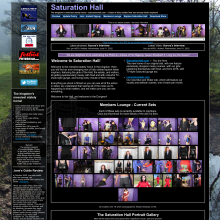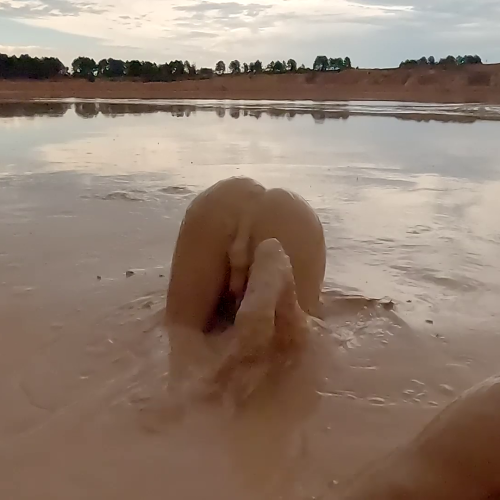|
|
|||
| forums: groups: | |||
|
"Survey of views on climate change"
Saturation Hall, Langstonedale
Lord of the Pies
So, climate change. Do you have a view? Some options and a poll.
Option 1: Conspiracy: The whole thing is a hoax / plot by various elites to justify higher taxes and/or more coercive governmental control of people's lives.
Option 2: Natural variation, there is no threat. It's not a hoax or conspiracy, but the dangers are over-hyped and in fact everything will work out just fine, no action is needed.
Option 3: There is a real problem but by a combination of actions already being taken, like emissions reductions and the global switch to renewable energy instead of coal and oil, plus perhaps some engineering solutions, humans will resolve the problem.
Option 4: We're on the death-ride. Existing carbon emissions and the warming already set in motion has passed the tipping points, nothing and no-one can now avert a complete climate catastrophe, runaway warming is unavoidable, the only valid response is don't have kids and hope to be safely dead beforte everything burns.
Obviously I have my own views, but interested to find out what the spread of views on UMD is.
Comments welcome too!
Option 1: Conspiracy: The whole thing is a hoax / plot by various elites to justify higher taxes and/or more coercive governmental control of people's lives.
Option 2: Natural variation, there is no threat. It's not a hoax or conspiracy, but the dangers are over-hyped and in fact everything will work out just fine, no action is needed.
Option 3: There is a real problem but by a combination of actions already being taken, like emissions reductions and the global switch to renewable energy instead of coal and oil, plus perhaps some engineering solutions, humans will resolve the problem.
Option 4: We're on the death-ride. Existing carbon emissions and the warming already set in motion has passed the tipping points, nothing and no-one can now avert a complete climate catastrophe, runaway warming is unavoidable, the only valid response is don't have kids and hope to be safely dead beforte everything burns.
Obviously I have my own views, but interested to find out what the spread of views on UMD is.
Comments welcome too!
Saturation Hall - Forth! The Gungemaidens!
Pie Punk said: Somewhere between 3 and 4 for me. I believe it CAN be fixed but the human race doesn't fill me with confidence that it will be. Went with 3 because 4 just gives people an excuse not to try.
I picked 3 for similar reasons. I don't think 3 is the truth; in particular, I have yet to hear a really convincing explanation of how it could be fixed or resolved. But I'm also skeptical of the idea that global warming is going to, like, turn the planet into Mars or something.
My personal view is:
-It's a real thing.
-It's already bad.
-It's going to get worse.
-It may even significantly disrupt the thing we think of as advanced civilization.
-But it poses no real long-term threat to the survival of our species, and if you look long enough down the road I'm not even sure that it's the main threat to human thriving.
Also, I've never understood the argument behind option 1. So businesses, governments and other "elites" have made up a crisis because they want us to consume less and be more resourceful? It seems to me like the ones denying or playing down climate change are ruthless, greedy businesspeople, and that's because the whole thing is kind of inconvenient to them.
Pie Punk said: Also, I've never understood the argument behind option 1. So businesses, governments and other "elites" have made up a crisis because they want us to consume less and be more resourceful? It seems to me like the ones denying or playing down climate change are ruthless, greedy businesspeople, and that's because the whole thing is kind of inconvenient to them.
As someone who tries to listen to both sides; a lot of the people (I've seen) who are the "option 1 types" usually point to how all the proposed solutions to the "climate emergency" strongly benefit those at the top. Higher taxes. More government power. More surveillance. Less privacy. Less freedom of movement. etc
As well as pointing out how unelected (and therefore unnacountable) third party bodies (such as the W.E.F) holding close and direct sway over our elected politicians, and use climate change as a means to push their own agenda.
Or simply ask what difference we'll make when China only pays lip service to appease the West, while continuing to expand fossil fuels consumption and dangerously exploit the environment.
My personal take is a mix of 1, 2, and 3. There is a LOT of natural shift in the climate- our geological records show both times of no polar ice and times of ice caps covering half the Earth, as well as times of extreme and rapid shifts in climate. ("rapid" in the geological sense- about 100 years for some of the fastest climate swings)
There are also significant man-made problems- burning the rainforests (for mining/arable land and grazing/soy plantations), pollution from oils/plastics, heavy metals from burning coal, lakes of highly toxic ooze from refining rare earth metals in China etc...
Then we have politicians doing what politicians do best- being corrupt and incompetent.
Solutions are a mix of 2 and 3- there is some natural balance, the planet will self adjust and we are not past the point of no return because the climate has been far more extreme in the past. There probably is a point of no return, no idea where it is or if we're going to get close to it soon.
There are things that can certainly help too- the burning of coal is particularly bad due to the ash being contaminated with heavy metals. (As far as I know this is driving the rising Lead levels in the Arctic ice sheet)
Gas isn't ideal, but is still a much much cleaner fuel that can sustain us until the renewables and nuclear infractructure is ready
Likewise going balls deep into "green tech" can also be rather destructive. Electric cars hit the environment pretty hard (Nickle/Lithium mining, rare earths refining). Biomass/biofuels are only a good option for byproducts and waste products. Growing biofuels directly puts a massive additional strain on the ecosystem and still requires a lot of fossil fuels and chemical fertaliser to produce the crop to make the fuel.
Solar and wind have some fantastic use cases- certainly where you can double use the land, like keeping grazing land under the solar panels, or install panels above a car park (added bonus of not turning your car into an oven in the summer).
The downside is they do not have a reliable output, other generation is needed to pick up the slack.
Nuclear is likely the 'best of a bad bunch' Yes, its non-renewable, it produces nuclear waste, it's very expensive to set up.
It's also very reliable, and can generate enormous amounts of power from a small quantity of fuel. It's quite clean (compared with fossils) and can still be made cleaner. And surprisingly it's actually one of the safest power generation options available (Second only to solar).
----------------
The most difficult part (and most important part) of the equation - is human nature.
It's imperative to solve both the climate/energy problem, and to do so while keeping civilisation intact.
Specifically a lot of us enjoy comfortable lives in a free and prosperous country. Indeed it's the freedom and prosperity which have given us the time to realise the problems we're facing.
The opposite is also true- someone who's cold, hungry, and struggling to keep a roof over their heads won't care about dolphins and pandas- let alone more esoteric things like carbon emissions and global stilling. People in this position strongly resent raises in tax/energy costs, and will in turn resent the reasoning for those raises in living costs.
Essentially there is a very real danger that climate policy could (through increased living costs) push a lot of people below the poverty line- those people will in turn naturally push back against policy.
There are also significant man-made problems- burning the rainforests (for mining/arable land and grazing/soy plantations), pollution from oils/plastics, heavy metals from burning coal, lakes of highly toxic ooze from refining rare earth metals in China etc...
Then we have politicians doing what politicians do best- being corrupt and incompetent.
Solutions are a mix of 2 and 3- there is some natural balance, the planet will self adjust and we are not past the point of no return because the climate has been far more extreme in the past. There probably is a point of no return, no idea where it is or if we're going to get close to it soon.
There are things that can certainly help too- the burning of coal is particularly bad due to the ash being contaminated with heavy metals. (As far as I know this is driving the rising Lead levels in the Arctic ice sheet)
Gas isn't ideal, but is still a much much cleaner fuel that can sustain us until the renewables and nuclear infractructure is ready
Likewise going balls deep into "green tech" can also be rather destructive. Electric cars hit the environment pretty hard (Nickle/Lithium mining, rare earths refining). Biomass/biofuels are only a good option for byproducts and waste products. Growing biofuels directly puts a massive additional strain on the ecosystem and still requires a lot of fossil fuels and chemical fertaliser to produce the crop to make the fuel.
Solar and wind have some fantastic use cases- certainly where you can double use the land, like keeping grazing land under the solar panels, or install panels above a car park (added bonus of not turning your car into an oven in the summer).
The downside is they do not have a reliable output, other generation is needed to pick up the slack.
Nuclear is likely the 'best of a bad bunch' Yes, its non-renewable, it produces nuclear waste, it's very expensive to set up.
It's also very reliable, and can generate enormous amounts of power from a small quantity of fuel. It's quite clean (compared with fossils) and can still be made cleaner. And surprisingly it's actually one of the safest power generation options available (Second only to solar).
----------------
The most difficult part (and most important part) of the equation - is human nature.
It's imperative to solve both the climate/energy problem, and to do so while keeping civilisation intact.
Specifically a lot of us enjoy comfortable lives in a free and prosperous country. Indeed it's the freedom and prosperity which have given us the time to realise the problems we're facing.
The opposite is also true- someone who's cold, hungry, and struggling to keep a roof over their heads won't care about dolphins and pandas- let alone more esoteric things like carbon emissions and global stilling. People in this position strongly resent raises in tax/energy costs, and will in turn resent the reasoning for those raises in living costs.
Essentially there is a very real danger that climate policy could (through increased living costs) push a lot of people below the poverty line- those people will in turn naturally push back against policy.
screen_name said:
As someone who tries to listen to both sides; a lot of the people (I've seen) who are the "option 1 types" usually point to how all the proposed solutions to the "climate emergency" strongly benefit those at the top. Higher taxes. More government power. More surveillance. Less privacy. Less freedom of movement. etc
As well as pointing out how unelected (and therefore unnacountable) third party bodies (such as the W.E.F) holding close and direct sway over our elected politicians, and use climate change as a means to push their own agenda.
Or simply ask what difference we'll make when China only pays lip service to appease the West, while continuing to expand fossil fuels consumption and dangerously exploit the environment.
Pie Punk said: Also, I've never understood the argument behind option 1. So businesses, governments and other "elites" have made up a crisis because they want us to consume less and be more resourceful? It seems to me like the ones denying or playing down climate change are ruthless, greedy businesspeople, and that's because the whole thing is kind of inconvenient to them.
As someone who tries to listen to both sides; a lot of the people (I've seen) who are the "option 1 types" usually point to how all the proposed solutions to the "climate emergency" strongly benefit those at the top. Higher taxes. More government power. More surveillance. Less privacy. Less freedom of movement. etc
As well as pointing out how unelected (and therefore unnacountable) third party bodies (such as the W.E.F) holding close and direct sway over our elected politicians, and use climate change as a means to push their own agenda.
Or simply ask what difference we'll make when China only pays lip service to appease the West, while continuing to expand fossil fuels consumption and dangerously exploit the environment.
I don't think I understand what you mean. How do higher taxes benefit "those at the top"? Last time I checked, billionaires and mega-corporations are fighting tooth and nail to keep taxes low, and even then they pull all kinds of silly accounting tricks to keep from paying the taxes that they actually do owe. I don't understand how higher taxes would benefit them at all. That makes no sense to me.
Nor do I understand how, like, taking public transportation instead of a private car counts as "less freedom of movement" or some kind of capitulation to the powerful. To be honest, I don't even know where to begin with that because it just makes no sense. If you could explain that even a little bit, maybe I would begin to get a sense of what you mean. For now, this really sounds completely irrational.
Also, when you say that the WEF and other "bodies" use global warming to push their own priorities, which priorities are you talking about? Like, again, the last time I checked, rich people weren't super-interested in raising taxes and building strong social safety nets. So, again, you might just have to be a little more specific.
As for China, again I have to say that I don't really understand your reasoning. To me it seems completely possible that global warming is real and the Chinese government just doesn't give a shit. Like, to put that another way, why should China's behavior have anything to do with the truth of global warming? How do their policies change the facts about, y'know, carbon pollution and average temperatures and all that stuff? To me there's no connection there.
screen_name also said: Essentially there is a very real danger that climate policy could (through increased living costs) push a lot of people below the poverty line- those people will in turn naturally push back against policy.
So, first off, I think you'll find that people do not reliably push back against policies that make them poor. America has been playing tax-cuts-and-trickle-down for nigh on forty years now, and a little under half of our voters still want to keep trying it.
And then, second, I think it's interesting that you assume that the costs here will be borne by the poorest. In the previous post you were talking about raising taxes and attacking the powerful and all that stuff - so, like, which is it? If we solve the problem by taxing rich people and then using that money to fund solutions that we give to poor people, then poor people don't get any worse off; if poor people bear the weight, then rich people get away with doing nothing. It can only be one of those two, right?
I think it's a spectrum.
The main feature i see based on 30 years of watching the weather and climate is option 2. However, I do not trust our Governments or international organisations such as the WEF one bit and think they have harnessed the fluctuations in climate for their own ends.
The future does scare me... but I don't think mother nature will end us... she knows exactly how to take care of the world. The governments and organisations of the world on the other hand, definitely have got more than our best interests at heart. Don't trust...
Short but sweet... probably makes me sound slightly tin-hat-ey but I don't care to be honest
The main feature i see based on 30 years of watching the weather and climate is option 2. However, I do not trust our Governments or international organisations such as the WEF one bit and think they have harnessed the fluctuations in climate for their own ends.
The future does scare me... but I don't think mother nature will end us... she knows exactly how to take care of the world. The governments and organisations of the world on the other hand, definitely have got more than our best interests at heart. Don't trust...
Short but sweet... probably makes me sound slightly tin-hat-ey but I don't care to be honest

I fear that national interests will override the common good.
That is a shortcoming of democracy.
Even democratic countries will fall short because most of us will not accept the reality.
And our politicians will reflect that.
Autocratic countries will simply pass the blame for catastrophe to others,
and with no opportunity for open debate, their people will accept this.
Peter
That is a shortcoming of democracy.
Even democratic countries will fall short because most of us will not accept the reality.
And our politicians will reflect that.
Autocratic countries will simply pass the blame for catastrophe to others,
and with no opportunity for open debate, their people will accept this.
Peter
Splash me
djandy1990 said: I think it's a spectrum.
The main feature i see based on 30 years of watching the weather and climate is option 2. However, I do not trust our Governments or international organisations such as the WEF one bit and think they have harnessed the fluctuations in climate for their own ends.
The main feature i see based on 30 years of watching the weather and climate is option 2. However, I do not trust our Governments or international organisations such as the WEF one bit and think they have harnessed the fluctuations in climate for their own ends.
There's the WEF again. What "own ends" are we talking about? Like, seriously, there's just not enough information here to even know if this is true or false. I'm not even sure if there's enough information here for *you* to know if what you're saying is true or false.
Also, I hate to break it to you, but the people who study this stuff have been looking at it for way more than 30 years
 Having a little respect for them might be a good idea
Having a little respect for them might be a good idea 
In between 2 and 3 here. IMO temperature data collection practices are poor, and it seems like there's a lot of aggressively pursuing the nations that make up the small bars on the Pareto chart of 'who's causing pollution.' The large bars on the other hand just carry on like normal. That's not addressing the root causes very well, and if the powers that be genuinely thought it's the end of the world as we know it they'd be handling things differently.
In general I feel like a lot of things don't make sense, like the whole electric car migration business. It makes more sense to keep what you have since it's already been made and just drive as little as possible rather than scrap it and expend all of the resources to make replacements. Likewise with changes to refrigeration systems, the actual refrigerant may be better but now we're making the systems themselves less reliable and in need of replacement more often. The pendulum is swinging a bit too far so to speak.
In general I feel like a lot of things don't make sense, like the whole electric car migration business. It makes more sense to keep what you have since it's already been made and just drive as little as possible rather than scrap it and expend all of the resources to make replacements. Likewise with changes to refrigeration systems, the actual refrigerant may be better but now we're making the systems themselves less reliable and in need of replacement more often. The pendulum is swinging a bit too far so to speak.
i sit between 2 and 3. yes, humans have contributed to what is already a natural process but all the chicken little screeching that humans are responsible for all climate variation is frankly absurd to me.
for solutions, i'm a pragmatist. yes, emissions should be reduced but that should not involve trying to drive one of the underpinings of modern civilization (affordable power generation) off a cliff, as many of the 'ecomentalist' cult like to advocate for.
Nuclear (and where practical hydrothermal and/or hydro-electric/pumped hydro) should be the baseload underpinnings of any zero-carbon power system, supporting industry as well as baseload residential power from when wind and solar dont work. Wind and Solar can work but they cannot be the foundation of a modern power system.
EVs are currently not the true answer to transportation (despite preaching of that sort) because: A: power generation is either still legacy methods or the requirements outpace that producable by Solar/Wind and B: the amount of resources needed to produce current batteries, as well as production itself, are far more emissions intensive. in the short to medium term, eco-fuels that reduce emissions (with enough investment and commitment) can be the answer combined with hybrid technology while hydrogen and more efficient and less resource intensive batteries are developed (also with strong investment and commitment).
in my view, reasonable and efficient methods to replace legacy power methods are meeting the same problems that EVs met 20 years, with vested interests and opposition putting up roadblocks (knowingly or unknowingly) to development of those technologies with the extra irony that those pushing EVs have now become part of the problem.
so, the problem can be fixed without driving industries, economies and living standards off a cliff but the vested interests *ON BOTH SIDES OF THE FIELD* need to be disempowered so that a sensible, logical middle can get to work on developing and improving the real practical measures to avert problems down the road.
Unfortunately, at this stage i think it's unlikely because the extremes at both ends are forcing their influence to the detriment of the world as a whole.
/rant
when you cut out all the tin-foil chaff and consider the root points by themselves, they do have a bit of a point. politico-corporate dystopias have long been a boogeyman of the left-of-centre crowd but some segments of that same crowd have seemingly started to agitate for moves that would begin the road to that potential future. both extreme sides of the debate are getting to be mirror images of each other.
on your first point, totally agree. Australia, here, is a good example. we're 1.2% of world emissions. China? approx 1/3rd. US? 14% India? 7%. just between the 3 of them are approx 54% of global emissions. Australia gets ridiculous scrutiny and efforts to push our ailing power system into collapse for green measures yet China gets a pass. you can see the astounding flaws in the system.
I already made my point on new EVs. i think there'd be more value working on efficient means to convert existing cars into EVs or hybrids than it would expending more resources to make new (and generally more easily damagable) vehicles. Same with appliances, electronics et al. planned obsolescence is a contrary flawed policy the way it's pushed now.
for solutions, i'm a pragmatist. yes, emissions should be reduced but that should not involve trying to drive one of the underpinings of modern civilization (affordable power generation) off a cliff, as many of the 'ecomentalist' cult like to advocate for.
Nuclear (and where practical hydrothermal and/or hydro-electric/pumped hydro) should be the baseload underpinnings of any zero-carbon power system, supporting industry as well as baseload residential power from when wind and solar dont work. Wind and Solar can work but they cannot be the foundation of a modern power system.
EVs are currently not the true answer to transportation (despite preaching of that sort) because: A: power generation is either still legacy methods or the requirements outpace that producable by Solar/Wind and B: the amount of resources needed to produce current batteries, as well as production itself, are far more emissions intensive. in the short to medium term, eco-fuels that reduce emissions (with enough investment and commitment) can be the answer combined with hybrid technology while hydrogen and more efficient and less resource intensive batteries are developed (also with strong investment and commitment).
in my view, reasonable and efficient methods to replace legacy power methods are meeting the same problems that EVs met 20 years, with vested interests and opposition putting up roadblocks (knowingly or unknowingly) to development of those technologies with the extra irony that those pushing EVs have now become part of the problem.
so, the problem can be fixed without driving industries, economies and living standards off a cliff but the vested interests *ON BOTH SIDES OF THE FIELD* need to be disempowered so that a sensible, logical middle can get to work on developing and improving the real practical measures to avert problems down the road.
Unfortunately, at this stage i think it's unlikely because the extremes at both ends are forcing their influence to the detriment of the world as a whole.
/rant
screen_name said:
As someone who tries to listen to both sides; a lot of the people (I've seen) who are the "option 1 types" usually point to how all the proposed solutions to the "climate emergency" strongly benefit those at the top. Higher taxes. More government power. More surveillance. Less privacy. Less freedom of movement. etc
As well as pointing out how unelected (and therefore unnacountable) third party bodies (such as the W.E.F) holding close and direct sway over our elected politicians, and use climate change as a means to push their own agenda.
Or simply ask what difference we'll make when China only pays lip service to appease the West, while continuing to expand fossil fuels consumption and dangerously exploit the environment.
Pie Punk said: Also, I've never understood the argument behind option 1. So businesses, governments and other "elites" have made up a crisis because they want us to consume less and be more resourceful? It seems to me like the ones denying or playing down climate change are ruthless, greedy businesspeople, and that's because the whole thing is kind of inconvenient to them.
As someone who tries to listen to both sides; a lot of the people (I've seen) who are the "option 1 types" usually point to how all the proposed solutions to the "climate emergency" strongly benefit those at the top. Higher taxes. More government power. More surveillance. Less privacy. Less freedom of movement. etc
As well as pointing out how unelected (and therefore unnacountable) third party bodies (such as the W.E.F) holding close and direct sway over our elected politicians, and use climate change as a means to push their own agenda.
Or simply ask what difference we'll make when China only pays lip service to appease the West, while continuing to expand fossil fuels consumption and dangerously exploit the environment.
when you cut out all the tin-foil chaff and consider the root points by themselves, they do have a bit of a point. politico-corporate dystopias have long been a boogeyman of the left-of-centre crowd but some segments of that same crowd have seemingly started to agitate for moves that would begin the road to that potential future. both extreme sides of the debate are getting to be mirror images of each other.
hope said: In between 2 and 3 here. IMO temperature data collection practices are poor, and it seems like there's a lot of aggressively pursuing the nations that make up the small bars on the Pareto chart of 'who's causing pollution.' The large bars on the other hand just carry on like normal. That's not addressing the root causes very well, and if the powers that be genuinely thought it's the end of the world as we know it they'd be handling things differently.
In general I feel like a lot of things don't make sense, like the whole electric car migration business. It makes more sense to keep what you have since it's already been made and just drive as little as possible rather than scrap it and expend all of the resources to make replacements. Likewise with changes to refrigeration systems, the actual refrigerant may be better but now we're making the systems themselves less reliable and in need of replacement more often. The pendulum is swinging a bit too far so to speak.
In general I feel like a lot of things don't make sense, like the whole electric car migration business. It makes more sense to keep what you have since it's already been made and just drive as little as possible rather than scrap it and expend all of the resources to make replacements. Likewise with changes to refrigeration systems, the actual refrigerant may be better but now we're making the systems themselves less reliable and in need of replacement more often. The pendulum is swinging a bit too far so to speak.
on your first point, totally agree. Australia, here, is a good example. we're 1.2% of world emissions. China? approx 1/3rd. US? 14% India? 7%. just between the 3 of them are approx 54% of global emissions. Australia gets ridiculous scrutiny and efforts to push our ailing power system into collapse for green measures yet China gets a pass. you can see the astounding flaws in the system.
I already made my point on new EVs. i think there'd be more value working on efficient means to convert existing cars into EVs or hybrids than it would expending more resources to make new (and generally more easily damagable) vehicles. Same with appliances, electronics et al. planned obsolescence is a contrary flawed policy the way it's pushed now.
It seems to me that we need three things to happen to succeed in combating climate change.
1. Humanity moves beyond race, religion, partisanship, prejudice and greed to unite behind this problem, and we all work together, as a unit, to stop the damage -- and then, we keep cooperating while we repair what's been done.
2. The entire global economy has to be re-engineered so that it no longer rewards the production of things that cause climate change. This is going to be painful. All the people who lose their jobs or have to change what they do are going to have to receive some kind of assistance and compensation or they'll have no reason whatsoever to cooperate.
We're definitely not there with the idea of re-imagining the economy, especially here in America where capitalism is treated like something holy.
3. Any countries at war have to stop showering heat-producing bombs immediately. As for the aggressors, they just don't care. As for the countries that are being attacked, they're not on board with climate change because they're much too busy fighting back.
I do think it is possible to stop this in time. But we need these changes made.
Any chance?
Nessie
1. Humanity moves beyond race, religion, partisanship, prejudice and greed to unite behind this problem, and we all work together, as a unit, to stop the damage -- and then, we keep cooperating while we repair what's been done.
2. The entire global economy has to be re-engineered so that it no longer rewards the production of things that cause climate change. This is going to be painful. All the people who lose their jobs or have to change what they do are going to have to receive some kind of assistance and compensation or they'll have no reason whatsoever to cooperate.
We're definitely not there with the idea of re-imagining the economy, especially here in America where capitalism is treated like something holy.
3. Any countries at war have to stop showering heat-producing bombs immediately. As for the aggressors, they just don't care. As for the countries that are being attacked, they're not on board with climate change because they're much too busy fighting back.
I do think it is possible to stop this in time. But we need these changes made.
Any chance?
Nessie
I chose 4. Were fucked, no one who has the power to do anything will do anything. Guilting people into recycling, driving hybrids, or "reducing carbon footprint" is horse shit. Most of emissions come from multibillion dollar companies in the oil & gas industries and they're not going to push for alternative energies as this directly affects their income. They will however, continue to produce propaganda to make people think options 1 and 2 are a thing and the neo-lib left will continue to put it on the backs of people guilting them as mentioned above since they're still in the pocket of the multibillion dollar companies and make the suburban wine mom crowd think tying old news papers with twine or putting their bottles in a separate container is actually doing something, while they fly around in a private jet to go from Burbank to San Diego for the weekend. But yeah it's my fault I drive a car to get to work so I should pay money to get a carbon credit, what a joke.
Much love
Fox_Trot said: politico-corporate dystopias have long been a boogeyman of the left-of-centre crowd but some segments of that same crowd have seemingly started to agitate for moves that would begin the road to that potential future. both extreme sides of the debate are getting to be mirror images of each other.
I really wish people in this thread would be more specific

Like, *some segments* (who?) of the left have *seemingly* started to agitate (how?) for *moves* (which?) that would *begin*... Just say what you mean. Quit the foreplay and just say what you mean.
Anyway, Nessie, yeah - I don't see us giving up on hyper-production any time soon. We would have to have an economy where people are allowed to live and have things without contributing to the production (profit-making) process, which, like you said, would basically mean the end of capitalism. We'll get to the end of capitalism, but at this point it feels like it'll be forced on us rather than us choosing it like the supposedly intelligent beings we are.
And dormant, I don't think you're wrong in any of the particulars. (I still remember the stupid reusable-straws thing - like that was ever gonna make the difference.) But do you really think we're looking at, like, the end of all life on Earth?
I voted 3 because as humans we impact the earth in negative ways sometimes. Yes there are natural shifts that happen and have happened. The problem as I see it is the extreme shifts that are happening. We have impacted those shifts.
Recycling will not help us. It is a marketing ploy started by drink companies. The requirements for recycling certain plastics is so tight that even touching the wrong plastics mean they cannot be recycled. There have been many reports where journalists have shown the recycling bins go to the same landfill as the regular trash. Then we eventually send it to China, where we demonize them for the way they dispose of our trash. Such a great cycle we have created.
Driving energy vehicles may help in the short time. In the long time, how do you dispose of the batteries and recycle them in a way that does not damage the environment? Not everywhere is embracing the vehicles and there is not a good incentive to run charging stations. One person I read about had shut down their recharge station because Tesla had not paid them in 6 months.
We will not get rid of gas engines. There are too many people making bank on it. They have bought and paid for many congressmen many times over to ensure that they are not regulated too much. The smog put off by the refineries has been traced to horrible air quality in some places. But we won't get rid of the refineries. The only people that the companies and congress is interested in restricting are people. Everyone expects citizens to do all the work yet we produce the least amount of emissions.
At the end of the day any talk of climate change that only focuses on consumers doing the work is not a serious conversation. If you want people to recycle, make sure all plastics can be recycled. There is no reason that we cannot tell companies you have to use plastics that can be recycled. That means real recycling not this strict cannot be mixed with certain plastics bullshit. We need to look into cleaner fuel options. Things like water as fuel. It is possible to be used and possible to modify engines to use it. But because it would put oil companies out of business it does not get explored as much as it could be. All that lobbying money doing its job.
Recycling will not help us. It is a marketing ploy started by drink companies. The requirements for recycling certain plastics is so tight that even touching the wrong plastics mean they cannot be recycled. There have been many reports where journalists have shown the recycling bins go to the same landfill as the regular trash. Then we eventually send it to China, where we demonize them for the way they dispose of our trash. Such a great cycle we have created.
Driving energy vehicles may help in the short time. In the long time, how do you dispose of the batteries and recycle them in a way that does not damage the environment? Not everywhere is embracing the vehicles and there is not a good incentive to run charging stations. One person I read about had shut down their recharge station because Tesla had not paid them in 6 months.
We will not get rid of gas engines. There are too many people making bank on it. They have bought and paid for many congressmen many times over to ensure that they are not regulated too much. The smog put off by the refineries has been traced to horrible air quality in some places. But we won't get rid of the refineries. The only people that the companies and congress is interested in restricting are people. Everyone expects citizens to do all the work yet we produce the least amount of emissions.
At the end of the day any talk of climate change that only focuses on consumers doing the work is not a serious conversation. If you want people to recycle, make sure all plastics can be recycled. There is no reason that we cannot tell companies you have to use plastics that can be recycled. That means real recycling not this strict cannot be mixed with certain plastics bullshit. We need to look into cleaner fuel options. Things like water as fuel. It is possible to be used and possible to modify engines to use it. But because it would put oil companies out of business it does not get explored as much as it could be. All that lobbying money doing its job.
The only reasonable options are (3) and (4). In order for (2) to be true, we would need to have some prospect of meeting the 1.5 degree threshold. Unfortunately, we're set to pass that point in 5 years.
I chose (4) rather than (3), in large part because the political dominance of self-described rational moderates puts the kibosh on the necessary wide-scale economic changes needed for sustainability. There will never be an end to irrational dudes saying "we need to choose the middle path between the most controversial options". But that's fallacious. Prudence requires a compromise between two or more value-laden extremes only insofar as those extremes are supported by evidence. There is every reason to think that weather disruptions are ongoing and will worsen.
I chose (4) rather than (3), in large part because the political dominance of self-described rational moderates puts the kibosh on the necessary wide-scale economic changes needed for sustainability. There will never be an end to irrational dudes saying "we need to choose the middle path between the most controversial options". But that's fallacious. Prudence requires a compromise between two or more value-laden extremes only insofar as those extremes are supported by evidence. There is every reason to think that weather disruptions are ongoing and will worsen.
larryniven said:
And dormant, I don't think you're wrong in any of the particulars. (I still remember the stupid reusable-straws thing - like that was ever gonna make the difference.) But do you really think we're looking at, like, the end of all life on Earth?
And dormant, I don't think you're wrong in any of the particulars. (I still remember the stupid reusable-straws thing - like that was ever gonna make the difference.) But do you really think we're looking at, like, the end of all life on Earth?
All life on earth? Definitely not, the end of life as we know it? Yes. The end of humans? Maybe not completely but an incredibly large loss of the human population, which then would probably cause the world to eventually fix itself over a millennia.
Much love
dormant said: All life on earth? Definitely not, the end of life as we know it? Yes. The end of humans? Maybe not completely but an incredibly large loss of the human population, which then would probably cause the world to eventually fix itself over a millennia.
I am perfectly fine with the end of most human life to repair things. Leave like 15%.
When you say life as we know it, are you thinking like how COVID was the end of life as we know it for a time? Where gas masks, air purifiers etc will be required. Where lung based diseases run rampant.
The earth and life of some sort on it will survive, we won't. And that's probably for the best.
He's more potato now than man. Twisted and evil.
dormant said: All life on earth? Definitely not, the end of life as we know it? Yes. The end of humans? Maybe not completely but an incredibly large loss of the human population, which then would probably cause the world to eventually fix itself over a millennia.
Okay, gotcha - so you and I were interpreting 4 differently. Thanks for clarifying for me

Sure said: I chose (4) rather than (3), in large part because the political dominance of self-described rational moderates puts the kibosh on the necessary wide-scale economic changes needed for sustainability.
In the immediate term, yeah. It sure seems like the status quo is gonna be hard to maintain for another, like, 150-250 years, though, so I kinda feel like we'll adjust eventually. The adjustment will probably be very far from perfect, and by that point even a perfect solution will probably have very sharp limitations, but I have to believe that something's going to change eventually (for some sufficiently generous definition of "eventually").
Saturation Hall, Langstonedale
Lord of the Pies
Thanks to all who voted, I'm actually surprised there weren't more votes for 1 and 2. Thanks to all who commented too, interesting and respectfully made points. Overall, people still have hope.
I didn't post while the poll was running as I didn't want to bias the results, but now it's closed I'll admit I'm firmly in the "4" camp.
Due to all the CO2 humans have pumped into the atmosphere over the last 200-odd years, the Arctic tundra is thawing and releasing billions of tonnes of formerly frozen methane, which drives further warming causing more thawing, and even more releases. It's already a runaway process, climate collapse is coming, and nothing anyone can do now can prevent it. Don't have kids, enjoy the death-ride of civilisation, and hope we're all safely dead before the worst happens.
https://www.smithsonianmag.com/smart-news/ticking-timebomb-siberia-thawing-permafrost-releases-more-methane-180978381/
Everything and everyone is going to burn. Nothing now can stop that. Life may well continue. But humans, and probablty most other mammals, aren't going to be part of it.
I didn't post while the poll was running as I didn't want to bias the results, but now it's closed I'll admit I'm firmly in the "4" camp.
Due to all the CO2 humans have pumped into the atmosphere over the last 200-odd years, the Arctic tundra is thawing and releasing billions of tonnes of formerly frozen methane, which drives further warming causing more thawing, and even more releases. It's already a runaway process, climate collapse is coming, and nothing anyone can do now can prevent it. Don't have kids, enjoy the death-ride of civilisation, and hope we're all safely dead before the worst happens.
https://www.smithsonianmag.com/smart-news/ticking-timebomb-siberia-thawing-permafrost-releases-more-methane-180978381/
Everything and everyone is going to burn. Nothing now can stop that. Life may well continue. But humans, and probablty most other mammals, aren't going to be part of it.
Saturation Hall - Forth! The Gungemaidens!
Even though I voted (4), I'm firmly against doomerism. The blackpill attitude just doesn't help, and isn't something that facilitates any kind of interesting conversations or attempts at organizing. There's a conflict between the grim facts on the one hand and the need to fight on the other, and that conflict shouldn't be resolved just by giving in on one side of the equation or the other.
Saturation Hall, Langstonedale
Lord of the Pies
Sure said: Even though I voted (4), I'm firmly against doomerism. The blackpill attitude just doesn't help, and isn't something that facilitates any kind of interesting conversations or attempts at organizing. There's a conflict between the grim facts on the one hand and the need to fight on the other, and that conflict shouldn't be resolved just by giving in on one side of the equation or the other.
I've found a kind of peace in accepting that there is no future. Been paying attention to climate and environment issues since the 80s, I remember when what's now global warming was called "the greenhouse effect". Back in the 90s I thought we'd perhaps 300 years before things became unrecoverable. By the 00s, that was starting to look like an over-estimate, but there was still hope.
Then in the 2010s, the news about the Arctic - warming 6 x faster than anywere else, with catastrophic consequences for runaway methane release - came out. And by 2020, all the detailed climate models the IPCC had originally produced were junked for being far too conservative - what the models had predicted might happen by 2050, actually happened before 2020. Hence the rise of Extinction Rebellion - except all they've actually achieved is to give the UK the most draconian anti-protest laws in any Western democracy.
From a WAM perspective here in Northern England the current climate situiiation is great, we're gettinmg long summers of blazing sunshine and baking heat, ideal for shooting outdoor mud scenes on the riverbanks. Meanwhile the global temperature continues its inexorable climb, and El Nino is about to give us a real taste of what the future holds.
https://www.theguardian.com/environment/2023/jun/15/record-temperatures-global-heating
Saturation Hall - Forth! The Gungemaidens!
mrangry said: Somewhere between 1 and 2, it's a made up crock of shit, we've had extreme weather since the year dot
I think by now most people know that there's a difference between extreme weather and global warming, but, I mean, whatever - we don't really have to get into the weeds there. I guess my main question is, if you believe that, what do you make of the Exxon scientists who knew about (and pretty accurately predicted the course of) global warming all the way back in 1977 but decided to keep it a secret in order to protect their company's profits?
Like, if it's made up, surely an oil company wouldn't be the ones to make it up *and then* hide it from the public. That clearly makes no sense. An oil company would have no desire to invent a fake theory that could only possibly damage its profits. And even if they did go completely insane and want to do that, the only reason would be to share that information with the public, which is exactly the opposite of what they did.
So I'm curious about your interpretation of those events. Here are a few links for background, although really you can just google "exxon global warming" and you'll get thousands of equally good reuslts:
https://news.harvard.edu/gazette/story/2023/01/harvard-led-analysis-finds-exxonmobil-internal-research-accurately-predicted-climate-change/
https://www.greenpeace.org/usa/fighting-climate-chaos/exxon-and-the-oil-industry-knew-about-climate-crisis/exxons-climate-denial-history-a-timeline/
https://en.wikipedia.org/wiki/ExxonMobil_climate_change_denial
Sponsors
To avoid content being blocked due to your local laws, please verify your age ?
Sponsors

Design & Code ©1998-2026 Loverbuns, LLC 18 U.S.C. 2257 Record-Keeping Requirements Compliance Statement
Epoch Billing Support Log In





 Love you, too
Love you, too



















































